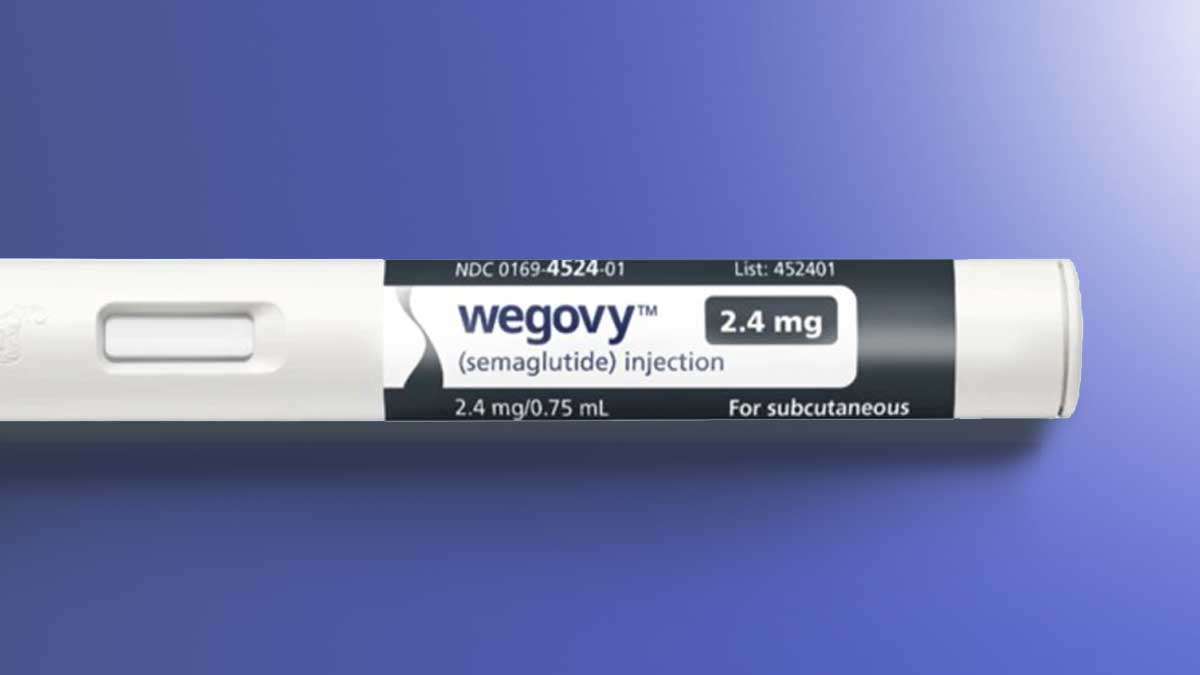- Home
- Billionaires
- Investing Newsletters
- 193CC 1000
- Article Layout 2
- Article Layout 3
- Article Layout 4
- Article Layout 5
- Article Layout 6
- Article Layout 7
- Article Layout 8
- Article Layout 9
- Article Layout 10
- Article Layout 11
- Article Layout 12
- Article Layout 13
- Article Layout 14
- Article Sidebar
- Post Format
- pages
- Archive Layouts
- Post Gallery
- Post Video Background
- Post Review
- Sponsored Post
- Leadership
- Business
- Money
- Small Business
- Innovation
- Shop
Recent Posts
GLP-1 Weight Loss Drug Use Surges, Diabetes Use Declines

The use of GLP-1 medications, such as semaglutide, for weight loss has surged significantly over the past decade. However, a recent study indicates a notable decline in their use among individuals with type 2 diabetes. Researchers have expressed concerns that this shift, coupled with ongoing drug shortages, may impact diabetics’ access to these essential treatments.
A study conducted by Cedars-Sinai Medical Center analyzed 1 million first-time GLP-1 prescriptions in the U.S. from 2011 to 2023. The research divided patients into those prescribed GLP-1s for type 2 diabetes and those using them for obesity or related health conditions, including high blood pressure and heart disease. The findings show a nearly 10% reduction in new GLP-1 prescriptions for diabetes over this period, while prescriptions for obesity-related conditions more than doubled, especially since 2020. The study was published in the Annals of Internal Medicine on Monday.
Semaglutide, marketed under the brand names Ozempic, Wegovy, and Rybelsus, was the most prescribed GLP-1 medication in 2023, accounting for over 88% of new prescriptions. GLP-1 drugs are designed to manage type 2 diabetes, heart disease, and obesity by lowering blood sugar levels, suppressing appetite, and slowing gastric emptying to enhance satiety.
Researchers are concerned that the growing popularity of GLP-1s for weight loss could exacerbate the nationwide drug shortage and jeopardize availability for diabetes patients. “The increasing demand for these medications among those seeking weight loss may be limiting access for patients with diabetes who still need them,” warned Dr. Yee Hui Yeo, co-first author of the study and clinical fellow in the Karsh Division of Gastroenterology and Hepatology at Cedars-Sinai.
The U.S. has approved seven GLP-1 medications, with a similar class of drugs, dual GLP-1 and GIP receptor agonists, represented by tirzepatide (generic for Mounjaro and Zepbound). However, only semaglutide, liraglutide (generic for Saxenda and Victoza), and tirzepatide are FDA-approved for weight management. Saxenda was the first to receive approval in 2014, followed by Wegovy in 2020 and Zepbound in 2023.
Several GLP-1 medications have been experiencing shortages for months, although some have recently been restocked. The three lowest doses of Wegovy remain unavailable with no clear recovery timeline, while all doses of Ozempic are now in stock. Mounjaro and Zepbound face shortages in two doses each, with improvement expected after July. Saxenda and Victoza are also in short supply. The FDA attributes these shortages to rising demand, and the European Medicines Agency has labeled the situation as a “major public health concern” expected to persist into 2024. Diabetics are struggling to obtain their medications, with some resorting to rationing due to the supply issues, NPR reports.
The decline in GLP-1 use among type 2 diabetics may be influenced by adverse side effects. While metformin remains the primary drug for glucose management in type 2 diabetes, some patients use second-line medications like GLP-1s to complement their treatment. A study by Northwestern Medicine found that nearly 40% of patients on second-line diabetes drugs discontinue use, with this rate climbing to 50% for those using GLP-1s. Gastrointestinal side effects, such as vomiting, nausea, and diarrhea, are often cited as reasons for discontinuation. Additionally, the high cost of these drugs contributes to their reduced use, according to a separate study by the American Diabetes Association.
The weight loss drug industry is projected to be worth $100 billion by 2030, with some estimates even higher. Cedars-Sinai researchers also noted a slight increase in off-label GLP-1 prescriptions, with the percentage of individuals receiving these drugs without meeting FDA criteria rising from 0.21% in 2019 to 0.37% in 2023. This trend could be linked to the growing use of GLP-1s for weight loss among individuals not meeting the FDA’s approved indications. Dr. Nancy Rahnama, an internal and bariatric medicine specialist, expressed concern over this misuse, warning that individuals using GLP-1s without proper indications are at higher risk of severe side effects.
Recent Posts
Categories
- 193cc Digital Assets2
- 5G1
- Aerospace & Defense44
- AI32
- Arts3
- Banking & Insurance11
- Big Data3
- Billionaires224
- Boats & Planes1
- Business304
- Careers13
- Cars & Bikes66
- CEO Network1
- CFO Network17
- CHRO Network1
- CIO Network1
- Cloud10
- CMO Network18
- Commercial Real Estate7
- Consultant1
- Consumer Tech155
- CxO1
- Cybersecurity51
- Dining1
- Diversity, Equity & Inclusion4
- Education7
- Energy8
- Enterprise Tech29
- Events11
- Fintech1
- Food & Drink2
- Franchises1
- Freelance1
- Future Of Work2
- Games135
- GIG1
- Healthcare74
- Hollywood & Entertainment154
- Houses1
- Innovation37
- Investing2
- Investing Newsletters4
- Leadership65
- Lifestyle10
- Manufacturing1
- Markets20
- Media183
- Mobile phone1
- Money13
- Personal Finance2
- Policy542
- Real Estate1
- Research6
- Retail1
- Retirement1
- Small Business1
- SportsMoney22
- Style & Beauty1
- Success Income1
- Taxes2
- Travel10
- Uncategorized6
- Vices1
- Watches & Jewelry2
- world's billionaires194
Related Articles
CDC Links Onions to McDonald’s E. Coli Cases Now at 90
The Centers for Disease Control and Prevention (CDC) announced on Wednesday that...
By 193cc Agency CouncilOctober 31, 2024Salad Kits and Poultry Recalled Over Listeria Threat
Recent recalls involving salad kits, frozen waffles, and poultry have sparked consumer...
By 193cc Agency CouncilOctober 29, 2024McDonald’s Resumes Quarter Pounders After E. Coli Clearance
McDonald’s has announced the resumption of its Quarter Pounder burger sales following...
By 193cc Agency CouncilOctober 29, 2024Marburg Virus: Germany Negative; Rwanda Outbreak
Health officials confirmed on Wednesday that suspected cases of the deadly Marburg...
By 193cc Agency CouncilOctober 4, 2024















Leave a comment